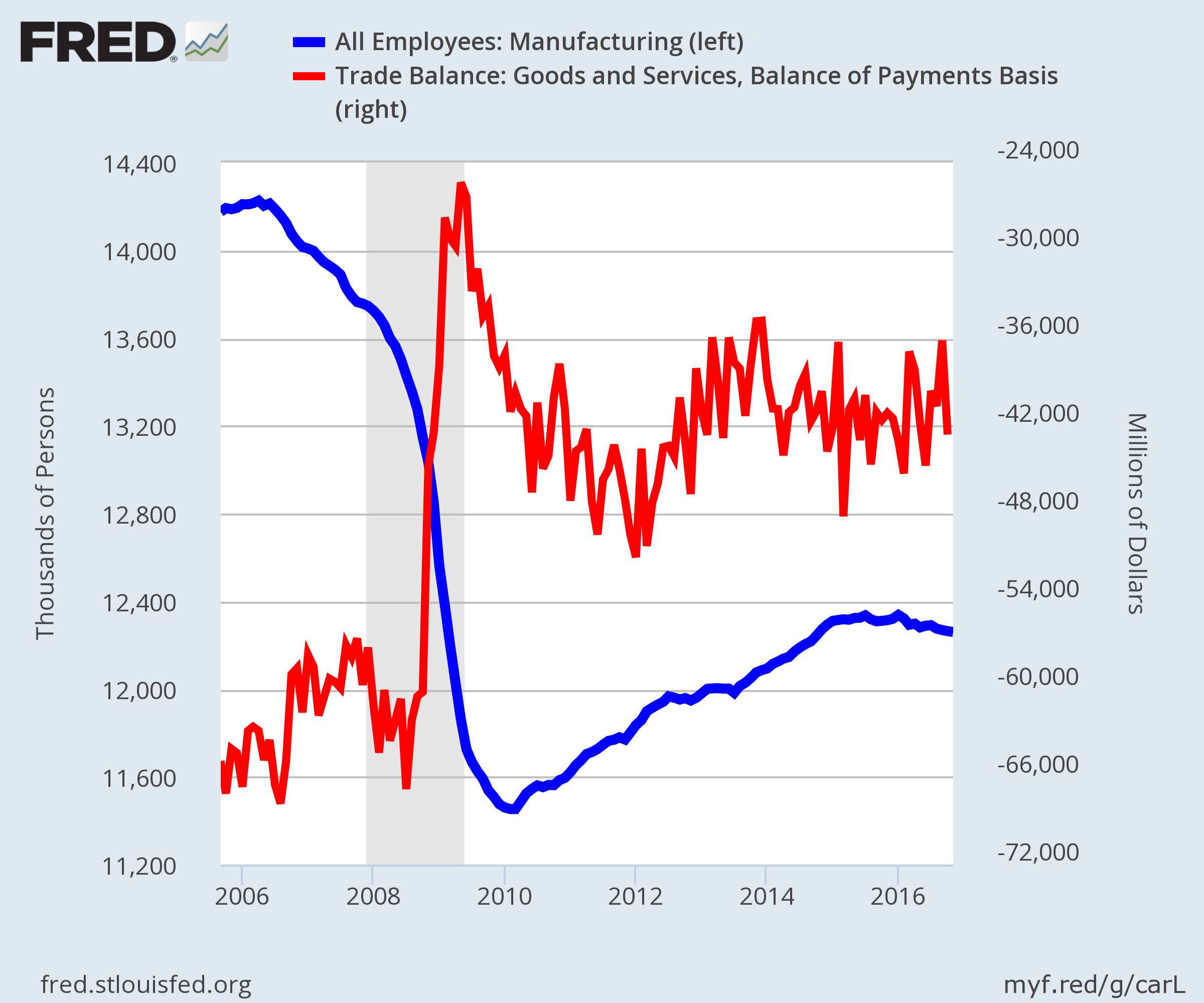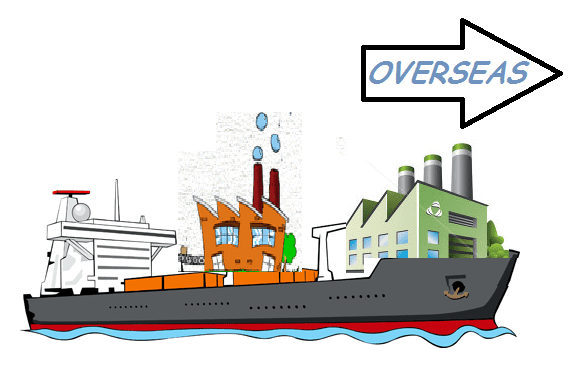expat_panama
Gold Member
- Apr 12, 2011
- 3,899
- 814
- 130
[from Mr. Trump, Here's Why Trade Deficits Are Good ]
===================
Many will say that the author's a twit and doesn't really know what he's talking about. I tend to agree.
The big problem w/ the trade deficit imho is that most folks that rant about it just don't know what it is. People like to say the trade defict's the same as the national budget deficit, that we're going broke into default and that all our factories are being shipped overseas so that's why the U.S. doesn't manufacture anything 'cause all the manufacturing jobs were stolen by China using NAFTA against the U.S.
imho this ignorance is by choice; the facts are open to all. Problem is the facts involve that number stuff that party hacks hate --and they show how manufacturing jobs increase w/ a growing trade deficit---

---that U.S. factories close w/ a shrinking trade deficit, while trade deficits mean more jobs for all and more wealth. Don't believe it? Can't understand how that can be possible? Beliefs and understandings are all well and good but step number one is to know what's going on and understanding why is impossible w/o first facing reality.
Only then can we understand what a Trade Deficit is --namely we sell capital and buy goods.
Long ago that used to be a bad thing --selling our farms to buy food. Now we sell designs, we sell patents, we sell stocks'n'bonds and we use the profits to buy goods'n'services. Don't look now but we live in the info age and Americans can crank out designs, patents, stocks'n'bonds all day long.
The big problem now is too many people only care about their feelings and to them it just doesn't feel right to have a trade deficit. All I can tell them is go ahead and enjoy all those feelings all day long but please do it elsewhere alone. That, and to remember if you feel it by yourself for too long it can make you blind.
Feb 27, 2017
Simon Constable
President Trump seems to have the wrong end of the stick when it comes to trade deficits.
He seems to think big trade deficits mean the U.S. is losing in the game of international trade...
...It's easy to see why most people view that massive sum as a failure. On the face of it, a trade deficit between two countries means that one country exported way more goods than the other...
...a big trade deficit shows that you got more for your exports than did the other country. The bigger the deficit, the better your country came out in the trade deal...
...China funds the U.S.
The deficit itself ends up being financed by the country with the trade surplus...
...if the U.S. had a trade surplus with China, then its economy would be financed by the U.S., which wouldn't be nearly as good.
Simon Constable
President Trump seems to have the wrong end of the stick when it comes to trade deficits.
He seems to think big trade deficits mean the U.S. is losing in the game of international trade...
...It's easy to see why most people view that massive sum as a failure. On the face of it, a trade deficit between two countries means that one country exported way more goods than the other...
...a big trade deficit shows that you got more for your exports than did the other country. The bigger the deficit, the better your country came out in the trade deal...
...China funds the U.S.
The deficit itself ends up being financed by the country with the trade surplus...
...if the U.S. had a trade surplus with China, then its economy would be financed by the U.S., which wouldn't be nearly as good.
===================
Many will say that the author's a twit and doesn't really know what he's talking about. I tend to agree.
The big problem w/ the trade deficit imho is that most folks that rant about it just don't know what it is. People like to say the trade defict's the same as the national budget deficit, that we're going broke into default and that all our factories are being shipped overseas so that's why the U.S. doesn't manufacture anything 'cause all the manufacturing jobs were stolen by China using NAFTA against the U.S.
imho this ignorance is by choice; the facts are open to all. Problem is the facts involve that number stuff that party hacks hate --and they show how manufacturing jobs increase w/ a growing trade deficit---

---that U.S. factories close w/ a shrinking trade deficit, while trade deficits mean more jobs for all and more wealth. Don't believe it? Can't understand how that can be possible? Beliefs and understandings are all well and good but step number one is to know what's going on and understanding why is impossible w/o first facing reality.
Only then can we understand what a Trade Deficit is --namely we sell capital and buy goods.
Long ago that used to be a bad thing --selling our farms to buy food. Now we sell designs, we sell patents, we sell stocks'n'bonds and we use the profits to buy goods'n'services. Don't look now but we live in the info age and Americans can crank out designs, patents, stocks'n'bonds all day long.
The big problem now is too many people only care about their feelings and to them it just doesn't feel right to have a trade deficit. All I can tell them is go ahead and enjoy all those feelings all day long but please do it elsewhere alone. That, and to remember if you feel it by yourself for too long it can make you blind.
